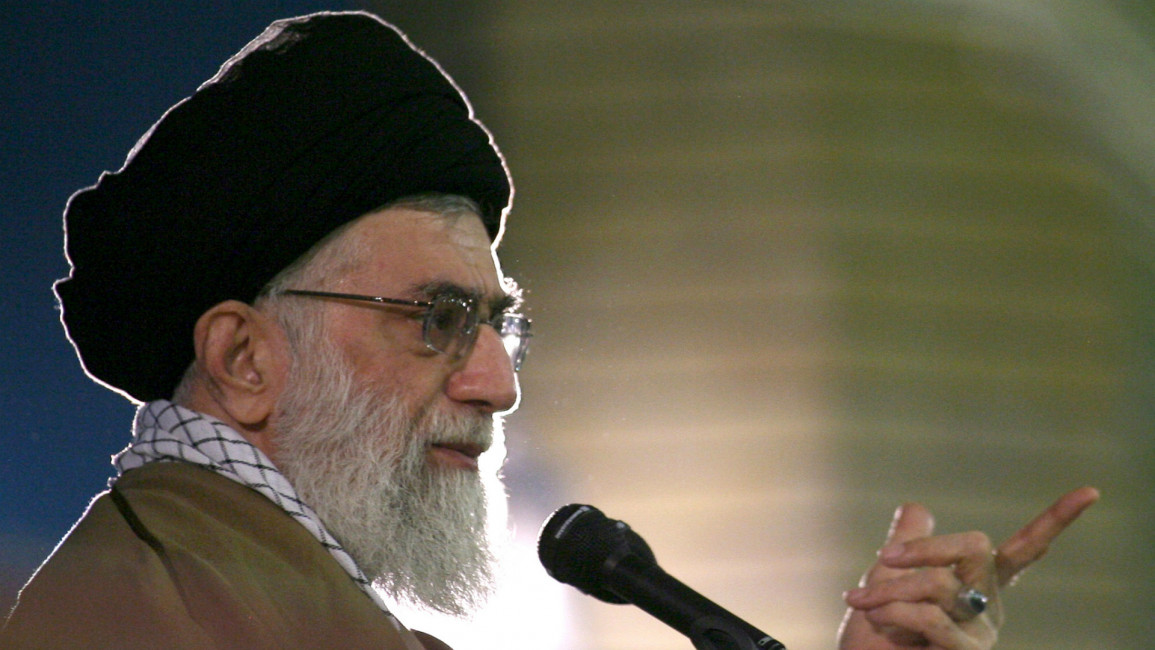US passes legislation banning cash payments to Iran
US passes legislation banning cash payments to Iran
A law prohibiting US cash payments to Iran was passed by the House of Representatives after claims $1.7 billion paid to Tehran in an arbitration dispute could fund terrorism.
3 min read
Republicans say the $1.7 billion paid by the US to Iran is untraceable [AFP]
The Republican-led House of Representatives approved legislation late on Thursday to prohibit the United States from making cash payments to Iran.
The bill, passed by a large margin of 254 votes to 163, also requires Congress to be notified before any future claims settlements with Tehran are conducted.
The legislative proposal won considerable support from Republicans keen to rebuke the Obama administration for paying Iran $1.7 billion in cash earlier this year in order to settle a decades-old arbitration claim.
The financial settlement, which took place in January, brought to an end a 35-year legal saga centred on a purchase of US arms by former Iranian monarch Shah Mohammad Reza Pahlavi that went undelivered due to the outbreak of the Iranian revolution in 1979.
Republican lawmakers decried the transaction as ransom, as the initial payment was made the same day Tehran agreed to release four American prisoners. They also contended that the untraceable cash could be used to finance global terrorism operations.
The Obama administration strenuously denies this charge while Democrats have accused Republicans of trying to score political points with the bill.
Although the new bill targets Iran, it also includes an amendment that would prevent the US from making cash payments to other designated sponsors of terrorism and North Korea.
“Cash does not leave a paper trail,” said House Foreign Affairs Committee Chairman Ed Royce. “Cash is the currency of terror.”
The Obama administration has threatened to veto the bill describing it as “an ill-advised attempt to respond to a problem – so-called ‘ransom’ payments to Iran – that does not exist.”
Eliot Engel, the top Democrat on the US House Foreign Affairs Committee has noted that holding Tehran’s money until Iran released the detained Americans “was a pretty shrewd bargain.”
By using the word ransom, Engel said, Republicans had purposely sought to turn the bill “into a political hot button – a poke in the eye of the administration.”
An initial $400 million payment in euros, Swiss francs and other foreign currency was delivered on January 17, the same day Tehran agreed to release the prisoners. The remaining $1.3 billion was paid in cash instalments made later on January 22 and February 5.
The Obama administration initially said the arbitration payment and the prisoner release were separate deals but later accepted that the cash had been used as leverage until the American nationals were permitted to leave Iran.
Treasury Secretary Jack Lew was questioned on Thursday about the payment by Republicans at a heated Financial Services Committee hearing.
Lew stringently defended the January deal insisting it wasn’t a ransom and was complied with sanction rules, adding that by settling a contract dispute for a smaller sum than the Iranians originally asked for had “saved the American people billions of dollars.”
The bill, passed by a large margin of 254 votes to 163, also requires Congress to be notified before any future claims settlements with Tehran are conducted.
The legislative proposal won considerable support from Republicans keen to rebuke the Obama administration for paying Iran $1.7 billion in cash earlier this year in order to settle a decades-old arbitration claim.
The financial settlement, which took place in January, brought to an end a 35-year legal saga centred on a purchase of US arms by former Iranian monarch Shah Mohammad Reza Pahlavi that went undelivered due to the outbreak of the Iranian revolution in 1979.
Republican lawmakers decried the transaction as ransom, as the initial payment was made the same day Tehran agreed to release four American prisoners. They also contended that the untraceable cash could be used to finance global terrorism operations.
The Obama administration strenuously denies this charge while Democrats have accused Republicans of trying to score political points with the bill.
Although the new bill targets Iran, it also includes an amendment that would prevent the US from making cash payments to other designated sponsors of terrorism and North Korea.
“Cash does not leave a paper trail,” said House Foreign Affairs Committee Chairman Ed Royce. “Cash is the currency of terror.”
The Obama administration has threatened to veto the bill describing it as “an ill-advised attempt to respond to a problem – so-called ‘ransom’ payments to Iran – that does not exist.”
Eliot Engel, the top Democrat on the US House Foreign Affairs Committee has noted that holding Tehran’s money until Iran released the detained Americans “was a pretty shrewd bargain.”
By using the word ransom, Engel said, Republicans had purposely sought to turn the bill “into a political hot button – a poke in the eye of the administration.”
An initial $400 million payment in euros, Swiss francs and other foreign currency was delivered on January 17, the same day Tehran agreed to release the prisoners. The remaining $1.3 billion was paid in cash instalments made later on January 22 and February 5.
The Obama administration initially said the arbitration payment and the prisoner release were separate deals but later accepted that the cash had been used as leverage until the American nationals were permitted to leave Iran.
Treasury Secretary Jack Lew was questioned on Thursday about the payment by Republicans at a heated Financial Services Committee hearing.
Lew stringently defended the January deal insisting it wasn’t a ransom and was complied with sanction rules, adding that by settling a contract dispute for a smaller sum than the Iranians originally asked for had “saved the American people billions of dollars.”


